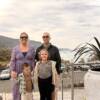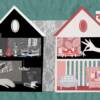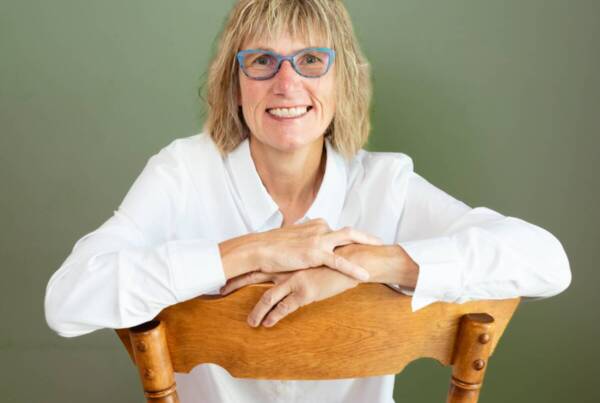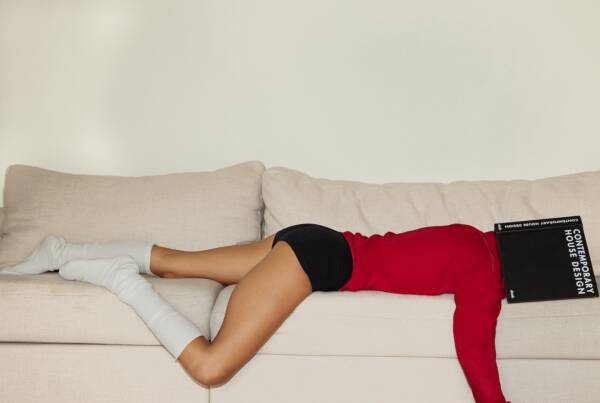Interview of Angie Mashford Scott by Freya Bennett // photography by gang of babes
 Angie is a Specialist Counsellor and the Founder of endokind. endokind is a new, private counselling practice specifically for those with endometriosis (and its sis, adenomyosis). Angie shared her personal, endometriosis story as well as giving us an insight into what endokind does and how you can get involved.
Angie is a Specialist Counsellor and the Founder of endokind. endokind is a new, private counselling practice specifically for those with endometriosis (and its sis, adenomyosis). Angie shared her personal, endometriosis story as well as giving us an insight into what endokind does and how you can get involved.
Tell us a bit about your story. What led you to create endokind?
Well, I’ve always had an interest in psychology and people – I studied psychology straight out of high school with the intention of becoming a child psychologist, but as I went along, I realised that the pathological and deficit-focused paradigm that existed at that time (and still does in some circles) didn’t really sit right with me. So I went into teaching and then later into research and lecturing, mostly in the areas of children’s wellbeing and inclusive education.
Then in 2020, when everyone’s lives got tipped upside down, I think the extra stress of that time pushed my body over the edge and while I’d had symptoms of endo since I was 18, they became unbearable. I was finally referred to a gynaecologist and had my surgery booked in not long after.
I’ll never forget that feeling of relief and validation when I woke up and my doctor told me she removed a significant amount of deep infiltrating endometriosis. I remember thinking before the surgery when I was laying waiting to be wheeled in, ‘what if I don’t have it? What if I’ve just built this all up in my head?’ Up until that point, doctors had just explained things away as ‘just anxiety’ or related to diet or I remember one doctor saying he thought it was because of the tight jeans I wore, ha! And then I had this specialist actually cut me open and find all of these deep endo growths eating away at my insides. It was quite emotional actually.
But I was unlucky and suffered complications post-surgery that ended me back in emergency with acute bladder damage that took a while to recover from. I couldn’t work during that time. On the one hand, I was excited and relieved to have a diagnosis, but on the other hand, I had bladder damage and weekly appointments back at the hospital and an uncertain future. So there was a lot to process and deal with, and other people are like ‘oh you’ve had the endo removed, are you better now?’ and that was so far from my reality.
And then a year or so after I had recovered from that first surgery, I had new symptoms and pain so I had another surgery in 2022. And this time, I got really unlucky and developed a serious kidney infection post-surgery that led to sepsis that landed me back in hospital, this time in ICU. It was quite a traumatic experience, and it changed me, in lots of different ways.
Reflecting on my experiences, it struck me how absurd and almost negligent it is that there isn’t any mental health support for people with endo – with all the gaslighting and minimising we go through, and how debilitating the disease is to live with, and all of the impacts on our bodies and minds. And I decided I wanted to go back and study to be a counsellor so I could start my own practice specifically for this community. So that’s what I did!
How do people with endo benefit from counselling with an endo-specialised therapist?
Living with endo can be so tough in so many ways, and that’s not just coping physically with the disease – being in chronic pain, chronically fatigued etc – but it’s how it affects your whole life – being able to work or study, socialise, travel. Plus some people with endo have fertility troubles, some have to make some pretty big decisions about their futures before most people have to. It can be really heavy and you can feel very alone. I feel like it’s the kind of thing that you just can’t get unless you’ve experienced it, or maybe if you know someone really close to you who has. So for myself personally, I could see that this was something that was really needed and that it would be really beneficial, and that’s what my clients are reflecting back to me now which is amazing.
What are endokind group sessions and why are you introducing them?
So there’s two groups – an online group and a Melbourne in-person group – and people can choose which group they’d like to join. Both groups will run monthly and we’ll be exploring a different topic each session – on things like the mind-body connection, stress reduction, self-advocacy in medical settings etc. We’ll run through a practical exercise that relates to the topic, and then there’ll be time for more of an open chat and share before a mindfulness exercise to finish. So it’s not quite a support group and not quite group therapy – it’s just how endokind is going to ‘do’ group sessions! And they’re going to have a relaxed, social vibe. The Melbourne group is being held in a really cool and comfy space. Not everyone wants the ‘ladies lunches’ and the ‘high teas’ that our leading org’s run. It’s not 1985 anymore! endokind is here for the anti-high tea crowd!
Part of the reason for introducing them is that I know groups can be really beneficial for mental health in general – now more than ever, we need community, we need to turn towards each other, we need to support one another. And I think specifically for those with endo, I know it can be a lonely and isolating condition, and I wanted to offer something that would alleviate this sense of being alone in all of this, and to create those village vibes where you feel like you belong, you’re understood, you’re sharing experiences and knowledge with each other, and you’re not alone. Another reason is that it’s a more affordable offering. I’ve had some people say they’d love to do individual counselling but can’t afford it right now and I totally get that, with the cost of living and housing crisis. So this offers people a more accessible option. Also, I have these lecturing and group facilitation skills from my previous career just hanging about – I thought it makes sense to put them to good use!
Learn more about endokind individual counselling and group sessions here.







